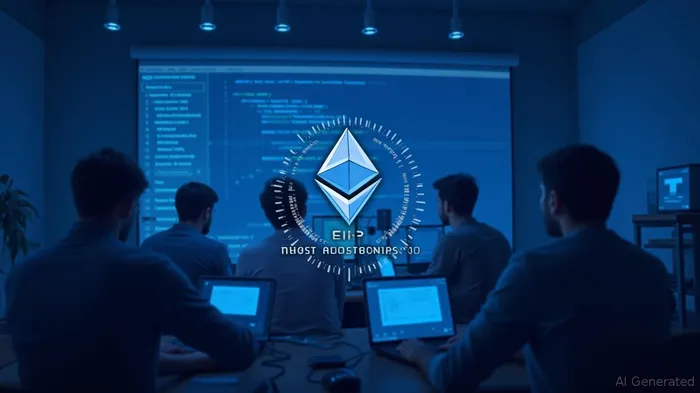Trust Wallet Supports EIP-7702 Enhancing Ethereum Account Functionality
In the rapidly evolving landscape of digital assets, there is a growing trend towards self-custody, driven by users seeking greater control and accountability over their assets. This shift is evident in the rising popularity of tools like Trust Wallet, one of the most widely used self-custodial wallets in the Web3 ecosystem. Users are increasingly demanding not just security, but also simplicity and ease of use. This insight has guided Trust Wallet in becoming one of the first wallets to support EIP-7702, Ethereum’s latest proposal to enhance the functionality of externally owned accounts (EOAs).
EIP-7702, proposed by Vitalik Buterin in May 2024, introduces a subtle yet significant evolution in how Ethereum accounts operate. It allows EOAs to temporarily adopt smart contract behavior within a single transaction, bringing the benefits of account abstraction (AA) without requiring users to migrate to new account types or relinquish control over their seed phrases. This innovation enables users to maintain full custody of their assets while gaining access to more flexible transaction logic, such as bundling approvals and actions into a single tapTAP--, enabling recurring payments, or supporting delegated session keys without separate smart contracts.
The introduction of EIP-7702 addresses several real-world pain points that users face, such as juggling across chains, manually managing gas balances, and dealing with failed or delayed transactions. By allowing gas fees to be paid using tokens already held, EIP-7702 simplifies the transaction process, making it faster and more predictable. This enhancement not only reduces the cognitive burden on users but also builds trust in the system by minimizing transaction failures.
Supporting EIP-7702 at scale requires a robust, modular backend infrastructure capable of interpreting user intent, dynamically routing gas, and reliably executing complex actions across chains. Trust Wallet has developed its own account abstraction engine entirely in-house, built to be secure, scalable, and chain-agnostic. This modular system includes components such as a Paymaster for handling custom gas logic and token-based gas payments, a Bundler for optimizing multi-step transactions, a Relayer for fast submission of abstracted transactions, and a Gas Provisioner for managing gas sources and routing across networks intelligently.
This internal architecture gives Trust Wallet a competitive edge in performance and reliability, setting a new standard for EOA-based smart wallet design. It has paved the way for features like FlexGas, which allows users to pay gas fees with tokens such as USDT or TWT on Ethereum and BNB Chain. Importantly, all these enhancements preserve the essence of self-custody, ensuring that users retain full control of their private keys and seed phrases, and there is no need to upgrade to a contract-based wallet.
If widely adopted, EIP-7702 could become a defining layer in the next generation of Web3 infrastructure. It enables a future where wallets are responsive, intelligent agents, automating complex strategies, onboarding users, and unlocking frictionless interactions at scale. Real-world applications are already in motion, with features allowing users to pay for gas with tokens they already hold, gasless onboarding, automated execution strategies, wallet-as-a-service models, and smart transaction policies for institutional-grade use all within reach.
The biggest breakthroughs in crypto often come from quiet upgrades that remove invisible frictions. EIP-7702 may be exactly that. It doesn’t change the way we think about Ethereum’s security model—it changes what that model can do for users. Progress in Web3 depends on how natural and intuitive the user experience feels, and EIP-7702 is a step towards making Web3 more human-centric.

Quickly understand the history and background of various well-known coins
Latest Articles
Stay ahead of the market.
Get curated U.S. market news, insights and key dates delivered to your inbox.



Comments
No comments yet